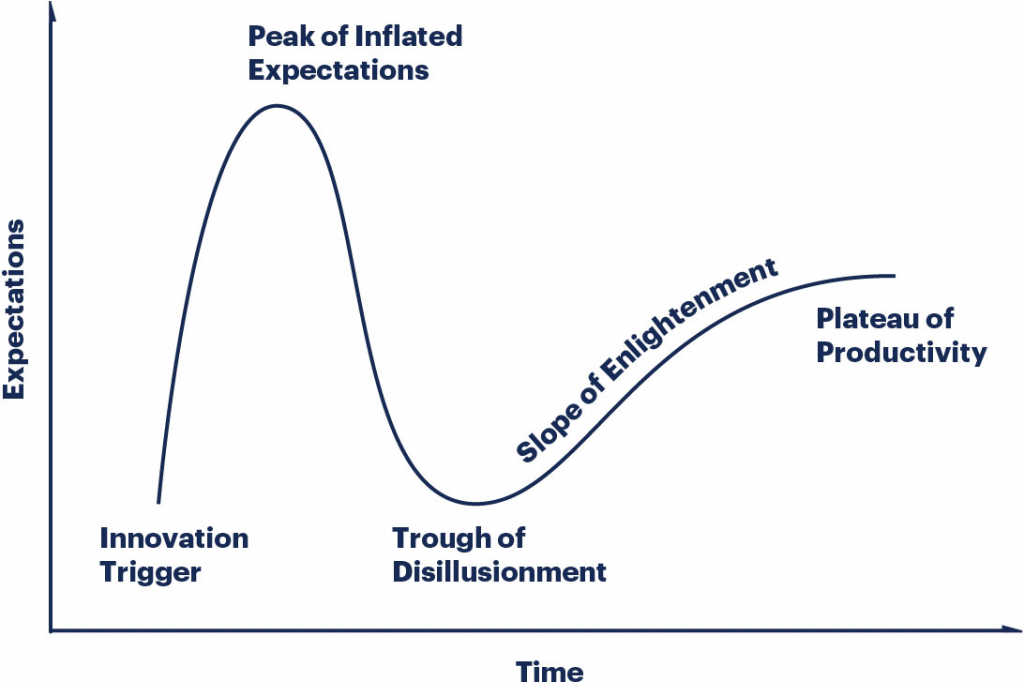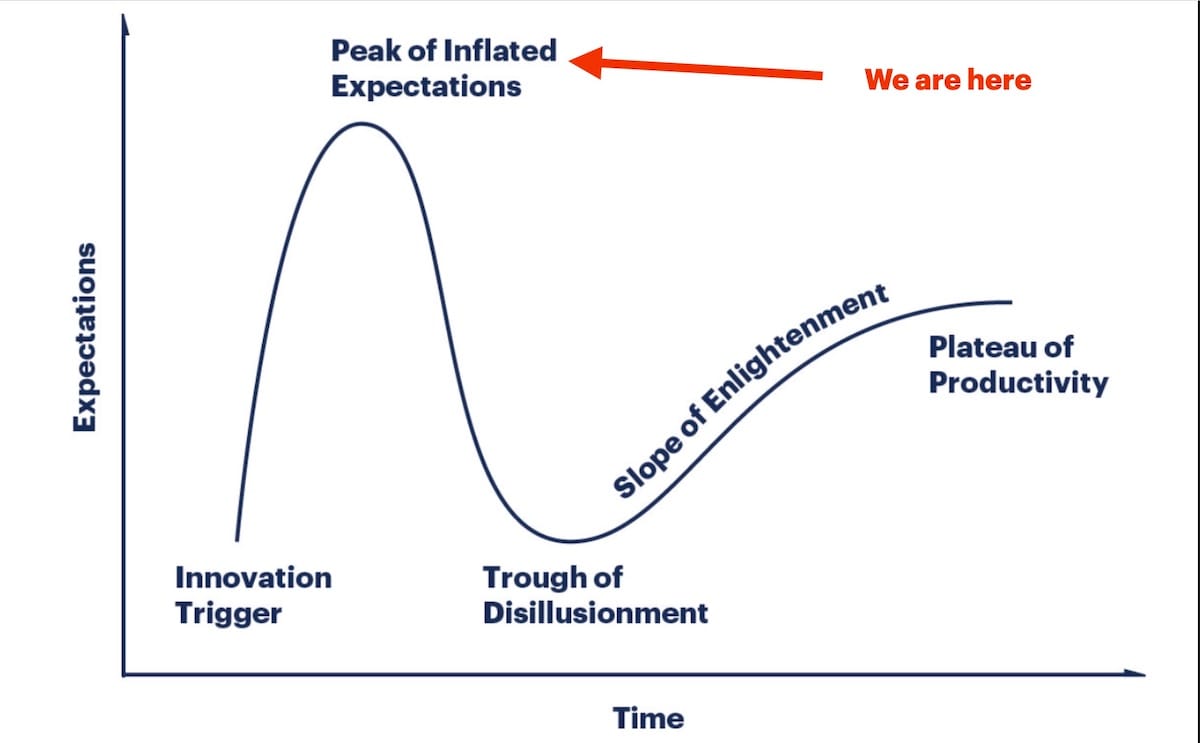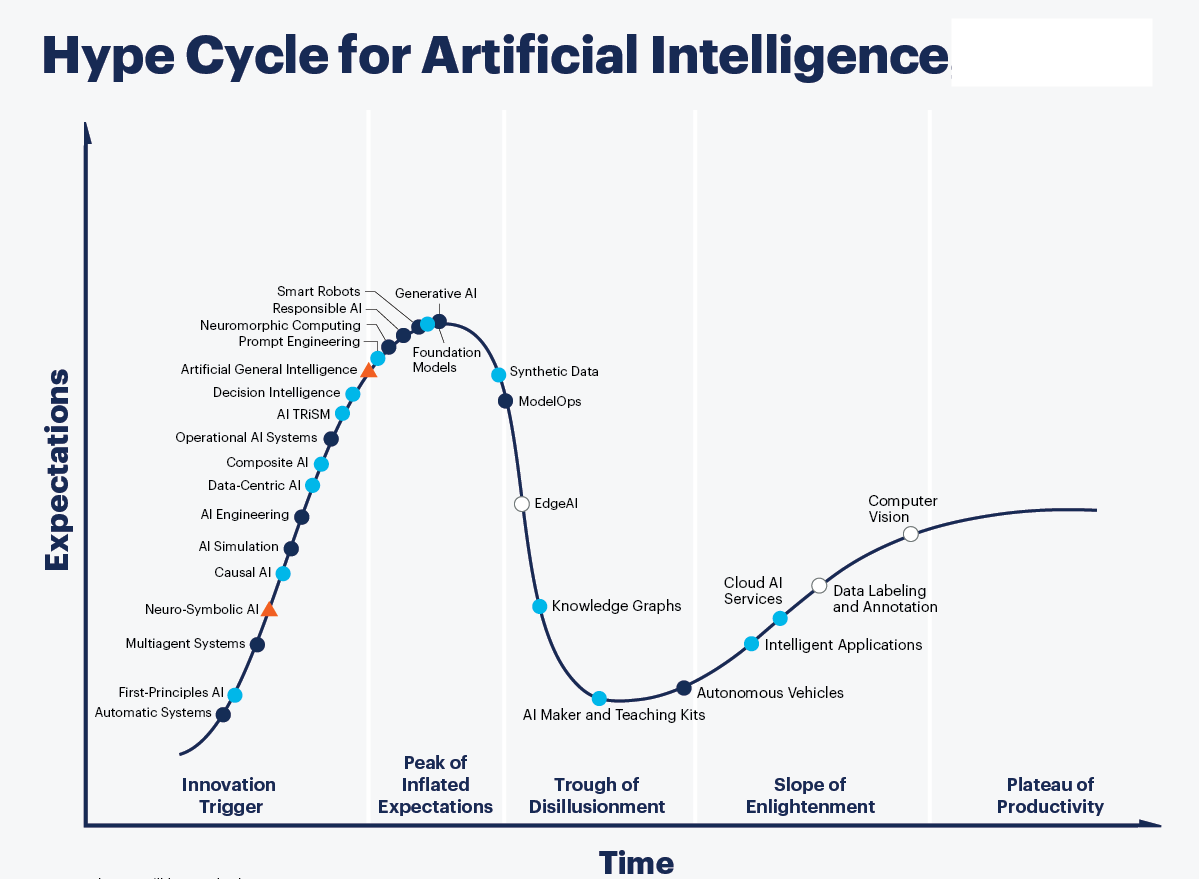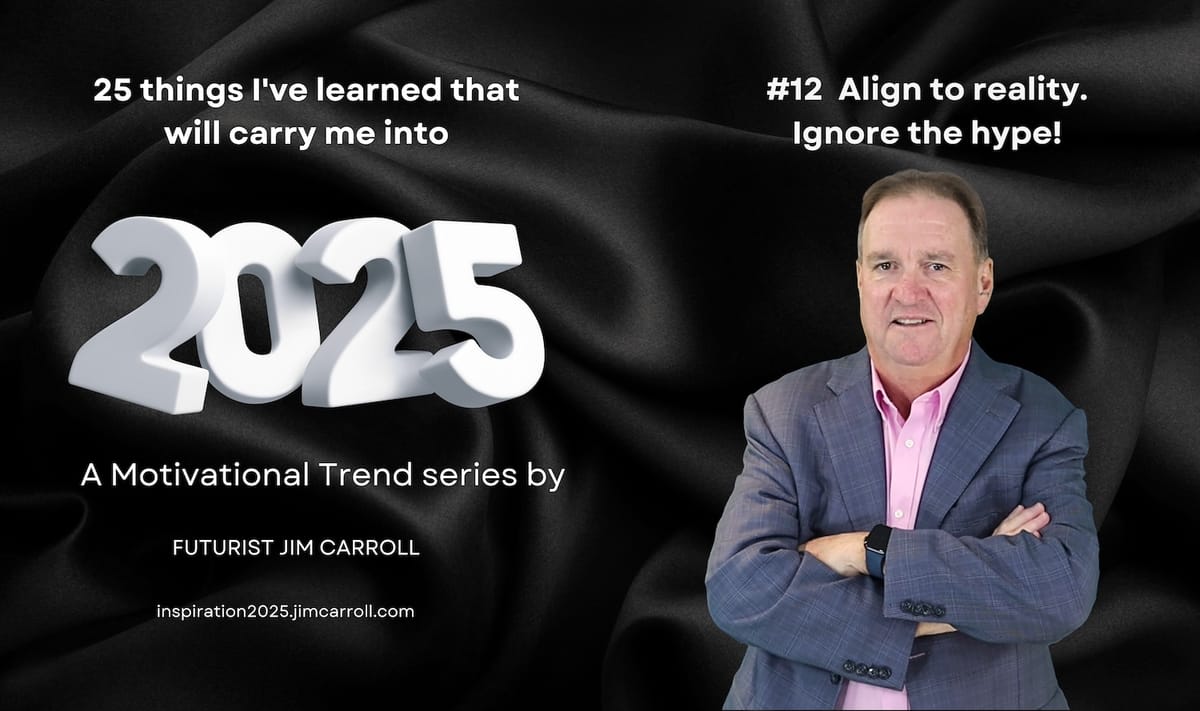"Align to reality. Ignore the hype!" - Futurist Jim Carroll
Futurist Jim Carroll is writing a series, “25 Things I’ve Learned That Will Carry Me Into 2025.” He is putting this together based on his 30-year career as a futurist, trends, and innovation expert, advising leaders of some of the world’s most prestigious organizations on how to align to a faster future. He intends for the series to provide valuable guidance to others eager to learn how to move through a year that promises to be volatile, unpredictable, and full of uncertainty. Each day, the post will go out on multiple mailing lists, social media networks, and to the Website https://2025inspiration.jimcarroll.com

When does the future happen?
The best answer I can give you is this: It won't happen as quickly as you think and yet is unfolding extremely fast, and even so, might also happen suddenly, all at once.
Makes sense?
That idea goes to the heart of the conundrum of timing the future, as best encapsulated in a phrase I often use on stage, attributed to Kevin Kelly, the founder of Wired: "The future happens slowly, and then, all at once." That concept has guided me into everything having to do with what I do as a futurist since, well, I became someone whom others sought advice from on what will happen next.
I know I've shared the issue of hype here before, but it is such an important issue that I had to put it on my list of things I will think about as I go into 2025. You should too. Understanding particular trends not only the trends themselves, but very much the timing of those trends. If we can better understand that timing, we can better understand the future.
Let's think about that in the context of the topic-du-jour, artificial intelligence. Has it run its course? Is it real? Is it hype? How do we judge it's reality?
That's a good question, and in a short answer, both yes and no and maybe.
One of the most important tools I use on stage when helping folks understand tomorrow is the Gartner Hype Cycle. For many years, it was released by a research firm as a way to guide people through the inevitable path that any particular trend follows.
Every single trend since the beginning of time goes through the curve. The trend appears - the Innovation Triggerwhich sets it free. Eventually, everyone gets overly excited about the trend, and the hype becomes intense as we hit the Peak of Inflated Expectations. Eventually, though, people see through the hype, and realize it will take a lot of effort to see any real benefit from the trend - and so we hit the Trough of Disillusionment. We then take some time to learn about it, experiment with it, and go through the Slope of Enlightenment.
Bottom line? We finally learn to take full advantage of it as the trend matures - we get to the Plateau of Productivity.

Every single trend I have ever been involved with has gone through the curve. Take e-commerce - I wrote a book in 1998, when the excitement of online shopping as seen with dot.com companies was at its peak. Selling Online: How to Become a Successful E-commerce Merchant took apart the issue of how to build an online store, as visions of riches inhabited the minds of everyone who was at the Peak of Inflated Expectations with the idea.
Even so, the book cautioned people not to get overly excited with the potential for success, which certainly proved to be prescient. We soon saw the 'great dot.com collapse' and a stock market downturn that was breathtaking in its scope, as people came to realize that companies that had no sales, no revenue, and not a whisper of a profit were not viable businesses. Whoops! We crashed into the Trough of Disillusionment. It took years before we hit the Slope of Enlightenment, and with the pandemic, the idea of online shopping finally hit the Plateau of Productivity.
Back to AI. Some of the promises and perils are certainly overstated ("Everyone is going to lose their job to an AI!"), and in my view and others, we are clearly at the Peak of Inflated Expectations with AI from a general perspective. There is just too much hype, too many false promises, and too much venture capital chasing too few solid business models.
What happens in the real world with the trend? I met with over a hundred CEOs of software companies in Houston in the fall of 2024 and shared this perspective. As expected, many were caught up in the excitement of the peak of inflated expectations and weren't too fond of my words. Some were rather scathing in their criticism of what I said! I stand by my words, though, and fully expect that many of them will have crashed to Earth in terms of their now realistic understanding of how AI might be integrated into their products.
My view? For quite some time, I've been of the view that here's where we are with AI (artificial intelligence) as a generalized trend.

I've recently been reading the work of a fellow named Ed Zitron, If you want a deeper understanding of where we might be with AI, read his most recent post, Godot Isn't Making It. The opening is a hell of a read!
I have been warning you for the best part of a year that generative AI has no killer apps and had no way of justifying its valuations (February), that generative AI had already peaked (March), and I have pleaded with people to consider an eventuality where the jump from GPT-4 to GPT-5 was not significant, in part due to a lack of training data (April).
I shared concerns in July that the transformer-based-architecture underpinning generative AI was a dead end, and that there were few ways we'd progress past the products we'd already seen, in part due to both the limits of training data and the limits of models that use said training data. In August, I summarized the Pale Horses of the AI Apocalypse — events, many that have since come to pass, that would signify that the end is indeed nigh — and again added that GPT-5 would likely "not change the game enough to matter, let alone [add] a new architecture to build future (and more capable) models on."
Throughout these pieces I have repeatedly made the point that — separate to any lack of a core value proposition, training data drought, or unsustainable economics — generative AI is a dead end due to the limitations of probabilistic models that hallucinate, where they authoritatively state things that aren't true. The hallucination problem is one that is nowhere closer to being solved — and, at least with the current technology — may never go away, and it makes it a non-starter for a great many business tasks, where you need a high level of reliability.
To say he is a skeptic, that's an understatement. Others fall in the same camp, while others disagree with his view.
For me? It's all about the hype cycle baby! Why is that? Because I've long been putting into perspective for my clients that AI is not one thing - it is many things - and different aspects of AI are at different points on the curve.

Take a look at Computer Vision - that's where AI is having a dramatic impact on healthcare (disease identification), manufacturing (product defect inspection), and other industries. Or look at Autonomous Vehicles - and consider what is happening in agriculture as we move to a world of 24-hour farming based on intelligent, self-operating tractor technology.
In my case, I'm very business with leadership keynotes that outline the AI opportunity in the short, medium, and long term, without the hype. My AI-focused Web site, JimCarroll.ai, continues to build out with overviews of the different clients I'm speaking to about the role of AI in manufacturing, insurance, agriculture, and other industries.

It's easy to think that the AI reality has run its course as we come to mark 2 years since the arrival of ChatGPT - and yet, there are many clients actively working beyond the hype cycle, knowing that much of AI involves 'the long-game' - the issue I raised in point #1 in this series.
That's what I'm covering with the trend, with talks that are focused on many other aspects of AI, all of which involve 'the long game.' This includes topics like these:
- Beyond ChatGPT - Artificial Intelligence (AI) and Automation: AI continues to provide potential for revolutionizing industries by automating complex tasks - the integration of AI in sectors like manufacturing, healthcare, and agriculture promises significant disruptive opportunities in these industries. Jensen Huang, CEO of Nvidia, is talking about how they are 'building gymnasiums for robots to learn how to be robots.'
- Human-Machine Collaboration: The synergy between humans and machines is evolving, with technologies like brain-computer interfaces and advanced robotics enhancing human capabilities and creating new opportunities for collaboration. Industries thinking about this include healthcare, manufacturing, and logistics/warehousing.
- Extended Reality (XR): The expansion of augmented reality (AR), virtual reality (VR), and mixed reality (MR) is transforming sectors such as education, entertainment, and training by providing immersive experiences and new ways of interaction. Think of the impact on education!
- Autonomous Systems and Robotics: Progress in autonomous vehicles, drones, and robotics is transforming industries such as logistics, agriculture, and healthcare by improving efficiency and safety. The arrival of Humanoid Robotics, in particular, is a massive trend to watch.
- Digital Twins and Simulation Technologies: Creating virtual replicas of physical systems allows for real-time monitoring and testing, enhancing predictive maintenance and operational efficiency. This is huge in construction, architecture, healthcare, logistics, warehousing and more.
Here's the thing - AI is at the heart of all these trends. And yet, most of these issues are medium and long-term trends.
ChatGPT and LLM's? Massive new opportunities are unfolding, but much of the hype ("Everyone is going to lose their job to an AI!") is overstated; many of the current business startups will crash and burn; and most organizations and people are still struggling to find a viable business case. In that way, Generative AI and LLM's are the e-commerce of the AI era.
I recently shared this post with my speaker bureau partners about what I see happening with AI as a speaking topic:
The point of all this is that while you might be a) thinking that AI as a topic has run its course and b) it's time to move on to the next hot topic, you'll be missing out on big opportunities as clients begin to focus on the next wave of AI technologies, as we go through the Trough of Disillusionment into the Slope of Enlightenment.
What's happening with an AI is a perfect example of what happens with every single trend that has entered into our lives - it evolves both quickly and slowly at the same time, and then, happens all at once.
Understand that, and you've got a critical bit of insight that will carry you into 2025!
If Futurist Jim Carroll has done one thing right in his career, it’s that he has not gotten overly caught up in the hype of fast-moving trends.

